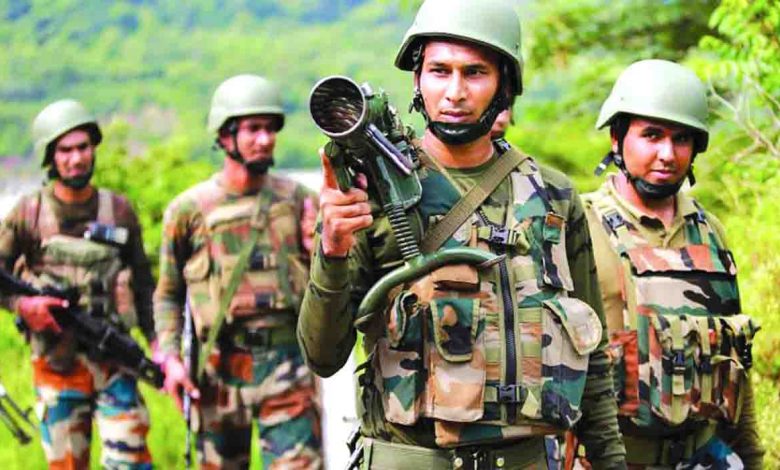Stress taking heavy toll on Army personnel

More soldiers have died due to stress than fighting enemy
With the Indian Army operationally deployed in all kinds of difficult terrains and insurgency areas for decades, more than half of the personnel seem to be under severe stress. As a result, more soldiers have died due to suicide, fratricide, and untoward incidents than fighting the enemy, says a study conducted by the United Services Institution of India (USI), an Armed forces’ think tank.
“There has been a significant increase in stress levels among Indian Army personnel during approximately last two decades due to operational and non-operational stressors,” said the report.
The study conducted by Colonel AK Mor, the research fellow at the USI for 2019-2020, also noted that prolonged exposure of the Indian Army personnel to counter-insurgency and counter-terrorism environment was one of the contributory factors for increased stress levels.
The study was titled “Prevailing Stress Levels in Indian Army due to Prolonged Exposure to Counter Insurgency/Counter-Terrorism environment.”
While operational stressors are well accepted by the Army personnel, the study noted that non-operational stressors that add on “have compounding adverse effects on health and combat efficiency of soldiers and thus affecting their respective units.”
In this regard, officers experience comparatively much higher cumulative stress levels as compared to the Junior Commissioned Officers (JCO) and Other Ranks (OR) and the stress causative factors are also different.
Highlighting the overall job satisfaction and pride in uniform remains high among JCOs and ORs, the study said, “It seems to be a growing matter of concern among officers, requiring urgent interventions from the highest levels of Government.”
“Despite harsh and challenging service conditions, Indian Army personnel remains highly motivated to serve in CI/CT areas voluntarily… However, the Officers lack a similar level of trust, faith, and confidence in their leadership that JCOs and ORs demonstrate,” it stated.
Calling for an institutionalized approach, the study recommended that stress prevention and management should be treated “as a leadership role at Unit and Formation level.”
Observing that various management measures implemented by the Army and the Defence Ministry during the last 15 years have not been able to achieve the desired results, the study said, “Units and sub-units under stress are likely to witness an increased number of incidents of indiscipline, the unsatisfactory state of training, inadequate maintenance of equipment, and low morale, motivation, and esprit-de-corps, thereby, adversely affecting their combat preparedness and operational performance.”
Some of the major organizational causes of stress among officers according to the study include, inadequacies in the quality of leadership, overburdened commitments, inadequate resources, frequent dislocations, lack of fairness and transparency in postings and promotions, down gradation in pay and status, inadequate promotional avenues, lack of motivation amongst juniors, non-grant of leave, indifferent attitude of civilian officials and short command tenures.”
For JCOs and ORs, some of the perceived organizational stressors include “delay and denial of leave, excessive engagements, domestic problems, humiliation by seniors, lack of dignity, unreasonable restrictions on the use of mobiles, lack of recreational facilities, conflict with seniors as well as subordinates, health problems, the inadequacy of train reservation, inefficient administrative support, financial problems, lack of transparency in promotions, non-adherence to unit tarteebs, delay in crediting of financial claims and poor quality of rations as well as cooked food.”
Saturday, 09 January 2021 | PNS | New Delhi





